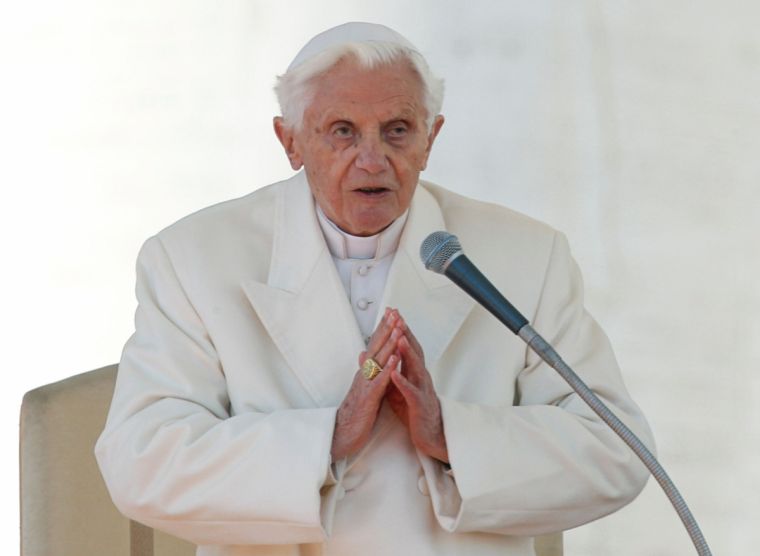Catholic Church must return to God to overcome abuse crisis, says Benedict XVI

Pope Francis' predecessor Benedict XVI has blamed the sexual abuse scandal blighting the Catholic Church on a "collapse" of moral theology and the impact of the sexual revolution.
In an article for German periodical Klerusblatt, the Pope emeritus said he wanted to send a "strong message" to the Catholic Church that if it wanted to be "truly credible" again as a force "against the powers of destruction", it needed to return to God.
He said that "Catholic moral theology suffered a collapse that rendered the Church defenseless" against increasing sexual permissiveness in society.
The sexual revolution of the 60s, he argued, also played into the "extensive collapse of the next generation of priests in those years".
Within the Catholic Church, he says problems started to emerge in seminaries where men were supposed to be preparing for the priesthood.
"In various seminaries homosexual cliques were established, which acted more or less openly and significantly changed the climate in the seminaries," he said.
In one seminary in southern Germany, Benedict said laymen were accompanied by their wives and children and "on occasion by their girlfriends".
"The climate in this seminary could not provide support for preparation to the priestly vocation," he said.
"The Holy See knew of such problems, without being informed precisely."
Regarding pedophilia in the Church, he said this did not become "acute" until the second half of the 1980s and that Catholic officials dealt with it by protecting the accused "to such an extent that convictions were hardly possible".
"Why did pedophilia reach such proportions? Ultimately, the reason is the absence of God," he said.
"A paramount task, which must result from the moral upheavals of our time, is that we ourselves once again begin to live by God and unto Him.
"Above all, we ourselves must learn again to recognize God as the foundation of our life instead of leaving Him aside as a somehow ineffective phrase."
There has been some criticism of Benedict's interpretation.
James J Martin SJ, a Jesuit priest and editor of the Jesuit magazine America, said on Twitter: "I have the greatest respect for Pope Emeritus Benedict XVI, especially as a theologian.
"However, I disagree with most of his analysis of the sex abuse crisis. Blaming it on poor theology and the sexual mores of the 1960s dramatically misses the mark."
Church historian Christopher Bellitto said the analysis ignored Pope Francis' sexual abuse summit in February in overlooking the fact that the abuse was not confined to western countries and also predated the swinging sixties.
"It is catastrophically irresponsible, because it creates a counter-narrative to how Francis is trying to move ahead based on the 2019 summit," he told Associated Press in an email.
"The essay essentially ignores what we learned there."











